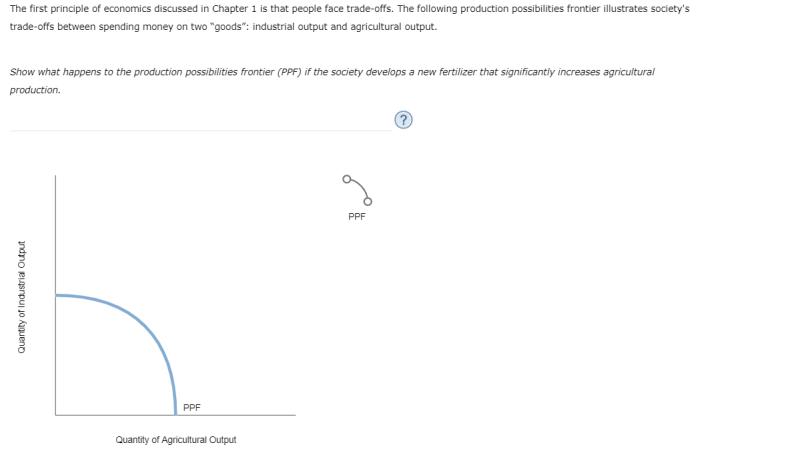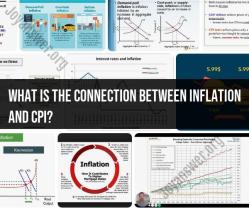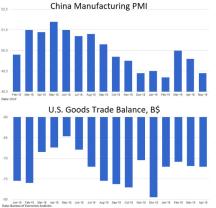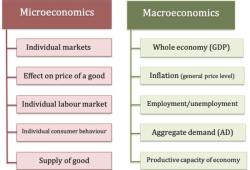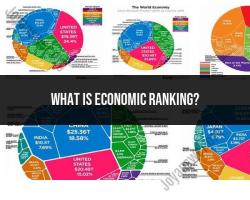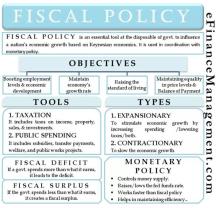What is the principle of trade in economics?
The principle of trade in economics refers to the concept that individuals, businesses, and nations can benefit by specializing in the production of goods and services in which they have a comparative advantage and exchanging them with others. This fundamental economic principle is based on the idea of mutual gains from trade and is often associated with the theory of comparative advantage, developed by economist David Ricardo.
Key points of the principle of trade include:
Comparative Advantage:
- Comparative advantage is the ability of a country, individual, or business to produce a good or service at a lower opportunity cost than others. It's not about being the absolute most efficient producer but rather about having a lower opportunity cost in the production of a particular item.
Specialization:
- The principle of trade encourages specialization, where entities focus on producing the goods and services for which they have a comparative advantage. By specializing, they can become more efficient and productive.
Mutual Gains:
- Trade is seen as a positive-sum game. When entities specialize and trade with one another, both parties can benefit. Each participant can obtain a mix of goods and services at a lower opportunity cost than if they tried to produce everything independently.
Efficiency and Resource Allocation:
- Trade allows for more efficient allocation of resources. Instead of each entity producing everything it needs, resources can be allocated to the production of goods and services where they are most efficiently used.
Global Interconnectedness:
- The principle of trade extends beyond individual transactions to the global level. Nations engage in international trade to take advantage of differences in resource endowments, technological capabilities, and other factors.
Market Mechanism:
- Trade is facilitated through markets, where buyers and sellers exchange goods and services. Prices in the market convey information about relative scarcity and value, guiding producers and consumers in making choices.
Wealth Creation:
- Trade contributes to wealth creation by allowing entities to access a broader array of goods and services than they could produce on their own. This leads to higher standards of living and economic growth.
Protectionism and Barriers:
- While the principle of trade emphasizes the benefits of free and open trade, various barriers, such as tariffs, quotas, and trade restrictions, can hinder the efficiency and benefits of trade. These barriers are often subject to debates in economic and political discussions.
In summary, the principle of trade underscores the idea that individuals and nations can enhance their well-being by specializing in the production of goods and services where they have a comparative advantage and engaging in voluntary exchanges with others. It is a cornerstone of classical economic thought and remains a fundamental concept in modern economics.
How does the principle of trade function within the realm of economics?
The principle of trade plays a fundamental role in economics, promoting mutual benefit and efficient resource allocation through voluntary exchange between individuals, firms, and even nations. Let's delve deeper into its key functions:
1. Specialization and Efficiency: Trade allows individuals and societies to specialize in activities where they have a comparative advantage. This means focusing on producing goods or services they can create with the least relative cost and then trading them for other goods or services they need. Specialization leads to increased efficiency overall, as total production outputs rise due to each party focusing on their strengths.
2. Increased Variety and Consumption: Trade expands the variety of goods and services available to consumers beyond what they could produce themselves. This increases consumer welfare by providing access to a wider range of choices and potentially even higher quality goods at lower prices.
3. Economic Growth and Development: International trade, in particular, can be a catalyst for economic growth. By exposing domestic producers to competition from abroad, it incentivizes them to improve efficiency and innovation. Additionally, exports generate income and foreign currency, which can be reinvested in the economy to drive further development.
4. Price Discovery and Market Mechanisms: Trade facilitates the interaction of supply and demand forces, leading to a market equilibrium price for goods and services. This price discovery mechanism helps allocate resources efficiently by guiding production and consumption decisions.
5. Resource Allocation and Utilization: Trade promotes efficient resource allocation by directing resources, including labor, capital, and natural resources, to their most productive uses across different regions and economies. This leads to overall higher output and greater societal well-being.
Challenges and Considerations:
While trade offers significant benefits, it's not without its challenges. Potential issues include:
- Unequal distribution of benefits: Trade can lead to uneven distribution of gains and losses, potentially widening economic inequality within and between countries.
- Job displacement: Increased competition from imports can lead to job losses in certain sectors in some countries, requiring appropriate adjustment policies and support for affected workers.
- Environmental impacts: Production and transportation associated with trade can have environmental consequences, requiring sustainable practices and regulations.
Overall, the principle of trade remains a cornerstone of economic theory and practice. Its ability to promote efficiency, growth, and variety underscores its crucial role in the interconnected global economy. However, recognizing and addressing potential challenges is essential to ensure that the benefits of trade are widely shared and contribute to sustainable development.
Do you have any specific questions about how trade functions in different contexts or its potential drawbacks? I'm happy to explore these further with you.
